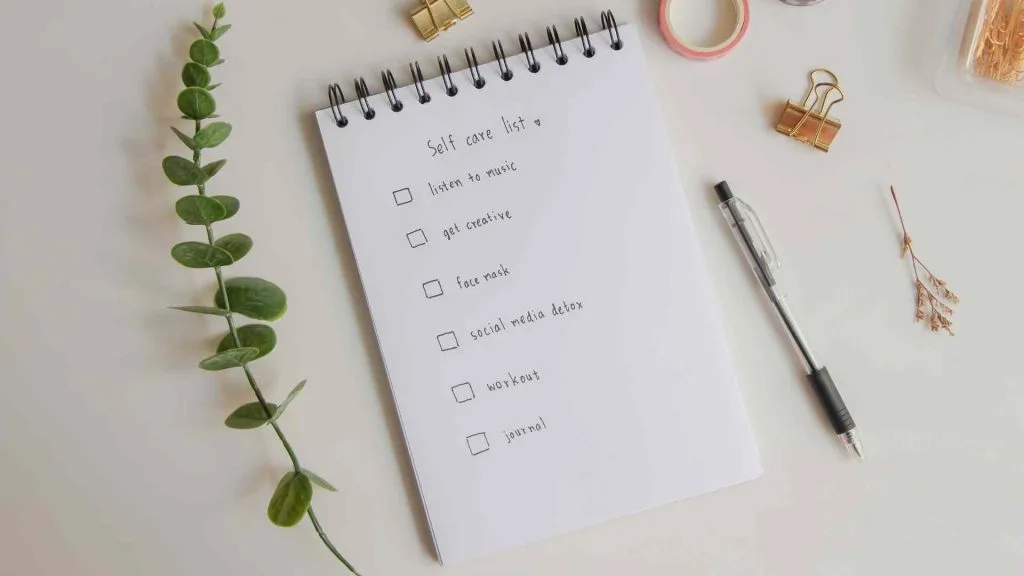Embrace the art of self-rejuvenation with the perfect self-care Sunday.
This comprehensive guide empowers you to nurture all aspects of your well-being, ensuring a balanced, fulfilling life. Dive into a journey of self-discovery and revitalization to transform your week ahead.

The Philosophy of Self-Care Sunday
Self-Care Sunday is more than a trend; it’s a philosophy that emphasizes the importance of dedicating time to nurture oneself.
This section delves into the roots and reasons why setting aside a day for self-care can lead to a more balanced and fulfilling life.
Historical Perspective on Self-Care
- Origins: The concept of self-care has ancient roots, tracing back to the practices of Greek philosophers who advocated for the care of the self to cultivate a good life.
- Evolution: Over centuries, self-care evolved, incorporating aspects of physical health, mental well-being, and spiritual growth. It’s been recognized by health professionals and wellness advocates alike as essential to holistic health.

Psychological Benefits of a Dedicated Self-Care Day
- Stress Reduction: Regular self-care acts as a buffer against stress, anxiety, and depression by providing a dedicated time to relax and recharge.
- Enhanced Resilience: Engaging in self-care routines strengthens emotional resilience, enabling individuals to handle life’s challenges more effectively.
- Improved Mental Health: Time dedicated to self-care activities can improve mood, reduce anxiety, and boost self-esteem.
The Impact of Self-Care Sunday on Life Balance
- Prioritizing Well-being: It encourages individuals to prioritize their health and happiness, often neglected in the hustle of daily life.
- Creating Rituals: Establishing a Self-Care Sunday routine can create a sense of stability and anticipation for one’s own care.
- Holistic Approach: It promotes a holistic approach to well-being, encouraging attention to physical, mental, emotional, and spiritual needs.
Self-Care Sunday embodies the understanding that taking time for oneself is not selfish but essential. It’s a day to pause, reflect, and engage in activities that replenish and restore.
By dedicating time to self-care, individuals can improve their overall quality of life, finding a deeper sense of peace, joy, and balance.
This practice serves as a powerful reminder that caring for oneself is the foundation upon which to build a strong, vibrant life.

Preparing for Self-Care Sunday
To fully embrace and benefit from Self-Care Sunday, preparation is key.
This section outlines steps to ensure your day of self-care is as impactful and rejuvenating as possible.
Setting Intentions for Your Day
- Define Your Goals: Begin by defining what you want to achieve with your Self-Care Sunday. Whether it’s relaxation, completing a personal project, or simply unwinding, setting clear intentions will guide your activities.
- Mindful Planning: Consider what activities align with your goals and how they contribute to your well-being. Be mindful to not over-schedule.
Creating a Conducive Environment
- Physical Space: Clean and organize your space to create a calming environment. Consider elements like lighting, scents, and comfort to enhance your experience.
- Digital Space: Prepare for a digital detox if part of your plan. Notify friends or family if you’ll be offline, set automated responses, and have a clear idea of how you wish to limit technology use.
Scheduling and Time Management Tips
- Flexible Schedule: Draft a loose schedule for the day, allowing for spontaneity. Include time buffers between activities for a relaxed pace.
- Prioritize: Choose activities that truly make you feel nourished and avoid filling your schedule with ‘should-dos’ instead of ‘want-tos.’
Necessary Supplies and Tools
- Gather Supplies: Based on your planned activities, gather any necessary items such as books, art supplies, bath products, or workout gear in advance.
- Health and Nutrition: Plan and prepare meals that are nutritious and enjoyable to add to the self-care experience. Think about hydration and perhaps prepare a special water infusion or herbal tea.
Tips for a Successful Self-Care Sunday
- Start the Night Before: Begin winding down earlier the night before. A good night’s sleep is the foundation of a productive self-care day.
- Limit Obligations: Try to limit chores or obligations to other days of the week to keep your Self-Care Sunday as free as possible.
- Reflect at the End: Take some time at the end of the day to reflect on your experiences and feelings. Consider jotting down thoughts in a journal to track your self-care journey.
Preparing for Self-Care Sunday is about creating a space and time where you can focus on your well-being without distractions or guilt.
By setting intentions, creating a conducive environment, managing your time wisely, and gathering necessary supplies, you’re paving the way for a day that truly rejuvenates your body, mind, and soul.

Physical Well-Being
Taking care of your body is a fundamental aspect of self-care. This section explores various ways to nourish and rejuvenate your physical health on Self-Care Sunday.
Nutrition and Hydration
- Plan Nutritious Meals: Prepare meals that are balanced and nutritious, incorporating plenty of fruits, vegetables, lean proteins, and whole grains.
- Hydration: Drink plenty of water throughout the day to stay hydrated and support overall bodily functions. Consider infusing water with fruits or herbs for added flavor.
- Mindful Eating: Practice mindful eating by savoring each bite, paying attention to hunger and fullness cues, and avoiding distractions while eating.
Exercise and Movement
- Gentle Exercise: Engage in gentle forms of exercise such as yoga, tai chi, or walking to promote flexibility, strength, and relaxation.
- Outdoor Activities: Spend time outdoors engaging in activities like hiking, gardening, or simply taking a leisurely stroll in nature.
- Home Workouts: Follow along with online workout videos or create your own workout routine at home using bodyweight exercises or fitness equipment.
Rest and Relaxation
- Prioritize Sleep: Aim for quality sleep by creating a relaxing bedtime routine, optimizing your sleep environment, and practicing relaxation techniques like deep breathing or progressive muscle relaxation.
- Restorative Practices: Incorporate restorative practices such as meditation, deep stretching, or taking a warm bath to relax your body and calm your mind.
- Limit Screen Time: Reduce exposure to screens before bedtime to promote better sleep quality and overall well-being.
Tips for Enhancing Physical Well-Being
- Listen to Your Body: Pay attention to your body’s signals and adjust your activities accordingly. Rest when needed and avoid pushing yourself too hard.
- Stay Consistent: Establish regular habits that support your physical well-being beyond just Self-Care Sunday. Consistency is key to long-term health.
- Practice Gratitude: Cultivate gratitude for your body and its abilities. Appreciate all that your body does for you and treat it with kindness and respect.
By prioritizing nutrition, hydration, exercise, and rest, you can support your body’s physical health and vitality on Self-Care Sunday and beyond.
Remember to listen to your body’s needs and make choices that nourish and energize you from the inside out.

Mental and Emotional Well-Being
Taking care of your mental and emotional health is essential for overall well-being. This section explores strategies and practices to nurture your mind and emotions on Self-Care Sunday.
Mindfulness and Meditation
- Mindfulness Practices: Engage in mindfulness exercises such as mindful breathing, body scans, or mindful walking to cultivate present moment awareness and reduce stress.
- Meditation Techniques: Explore different meditation techniques such as guided meditation, loving-kindness meditation, or mindfulness meditation to quiet the mind and promote relaxation.
- Journaling: Use journaling as a tool for self-reflection and emotional processing. Write about your thoughts, feelings, and experiences to gain insight and clarity.
Digital Detox
- Unplug and Disconnect: Take a break from digital devices and screens to reduce digital overwhelm and promote mental clarity.
- Create Boundaries: Set boundaries around your technology use by designating specific times or areas where devices are off-limits.
- Engage in Offline Activities: Use your Self-Care Sunday as an opportunity to engage in offline activities such as reading, crafting, or spending time in nature.
Creative Outlets
- Express Yourself: Engage in creative activities that allow you to express yourself and tap into your creativity, such as painting, writing, or playing music.
- DIY Projects: Take on DIY projects that spark joy and creativity, whether it’s crafting, home decor, or cooking a new recipe.
- Art Therapy: Explore art therapy techniques such as drawing, coloring, or collage-making to process emotions and promote relaxation.
Tips for Nurturing Mental and Emotional Well-Being
- Practice Self-Compassion: Be kind and gentle with yourself, especially during times of stress or difficulty. Treat yourself with the same compassion you would offer to a friend.
- Seek Support: Reach out to friends, family, or a mental health professional if you need support or someone to talk to.
- Set Healthy Boundaries: Establish boundaries to protect your mental and emotional well-being. Say no to activities or commitments that drain your energy or cause you stress.
By prioritizing mindfulness, disconnecting from technology, and engaging in creative activities, you can nurture your mental and emotional well-being on Self-Care Sunday.
Remember to be patient and compassionate with yourself as you explore different practices and find what works best for you.

Spiritual Well-Being
Nurturing your spiritual well-being is an integral part of self-care. This section explores practices and activities to connect with your inner self and cultivate spiritual growth on Self-Care Sunday.
Connecting with Nature
- Nature Walks: Take leisurely walks in nature to immerse yourself in its beauty and find peace in the natural world.
- Outdoor Meditation: Practice meditation or mindfulness exercises outdoors to deepen your connection with nature and quiet your mind.
- Nature Appreciation: Take time to appreciate the sights, sounds, and sensations of nature, cultivating gratitude for the earth and its gifts.
Spiritual Practices
- Meditative Practices: Engage in meditative practices such as prayer, chanting, or silent reflection to connect with your spiritual essence and cultivate inner peace.
- Exploration of Beliefs: Reflect on your beliefs and values, exploring spiritual texts, teachings, or philosophies that resonate with you.
- Sacred Rituals: Create meaningful rituals or ceremonies that honor your spiritual beliefs and provide a sense of sacredness and connection.
Gratitude and Reflection
- Gratitude Practice: Cultivate an attitude of gratitude by reflecting on the blessings and abundance in your life, both big and small.
- Journaling: Use journaling as a tool for self-reflection and spiritual exploration, writing about your experiences, insights, and moments of gratitude.
- Quiet Contemplation: Spend quiet time in contemplation or prayer, allowing yourself to connect with your inner self and higher power.
Tips for Cultivating Spiritual Well-Being
- Follow Your Heart: Trust your intuition and follow the path that resonates with your heart and soul, rather than conforming to external expectations.
- Stay Open-Minded: Remain open to new experiences, ideas, and perspectives that may deepen your spiritual understanding and connection.
- Practice Acceptance: Embrace imperfection and accept yourself exactly as you are, recognizing that spiritual growth is a journey of self-discovery and self-acceptance.
By connecting with nature, engaging in spiritual practices, and cultivating gratitude and reflection, you can nurture your spiritual well-being on Self-Care Sunday.
Remember that spirituality is a deeply personal and individual journey, so allow yourself the freedom to explore and discover what brings meaning and fulfillment to your life.

Social Self-Care
Social connections play a crucial role in overall well-being. This section focuses on nurturing relationships and fostering meaningful connections on Self-Care Sunday.
Prioritizing Relationships
- Quality Time: Spend quality time with loved ones, whether it’s family, friends, or pets. Engage in activities that strengthen your bond and bring joy.
- Deep Conversations: Have meaningful conversations with trusted individuals, sharing your thoughts, feelings, and experiences openly and authentically.
- Express Gratitude: Express gratitude for the people in your life, acknowledging their support, love, and presence.
Setting Boundaries
- Healthy Boundaries: Set boundaries to protect your energy and well-being in social interactions. Learn to say no to activities or commitments that drain you or cause stress.
- Self-Care Assertiveness: Practice assertiveness in communicating your needs and priorities in relationships, ensuring that your self-care remains a priority.
Solo Social Activities
- Solo Adventures: Engage in solo activities that bring you joy and fulfillment, such as exploring nature, visiting museums, or enjoying a quiet day of reading.
- Self-Reflection: Take time for introspection and self-reflection, nurturing your relationship with yourself and gaining insight into your needs and desires.
Tips for Social Self-Care
- Quality Over Quantity: Prioritize quality connections over the quantity of social interactions. Focus on nurturing relationships that bring positivity and support into your life.
- Virtual Connections: Stay connected with loved ones, even if you can’t be physically together, through phone calls, video chats, or handwritten letters.
- Community Engagement: Get involved in your community or join social groups with shared interests, fostering connections and a sense of belonging.
By prioritizing relationships, setting healthy boundaries, and engaging in solo social activities, you can nurture your social well-being on Self-Care Sunday.
Remember that social self-care is about fostering connections that bring joy, support, and fulfillment into your life, both with others and with yourself.

Personal Growth and Development
Self-Care Sunday is an opportune time to focus on personal growth and development. This section highlights ways to invest in yourself and cultivate a fulfilling life on a deeper level.
Goal Setting and Personal Projects
- Reflect on Goals: Take time to reflect on your short-term and long-term goals, both personally and professionally.
- Set Intentions: Set intentions for Self-Care Sunday that align with your goals, focusing on activities that promote growth and progress.
- Break Tasks Down: Break down larger goals into smaller, actionable steps, making them more manageable and achievable.
Learning New Skills
- Explore Interests: Identify areas of interest or curiosity and explore opportunities to learn new skills or knowledge.
- Online Courses: Enroll in online courses, workshops, or webinars related to your interests or professional development goals.
- Self-Directed Learning: Take a self-directed approach to learning by reading books, watching educational videos, or practicing hands-on activities.
Reading and Educational Podcasts
- Reading for Growth: Dedicate time to reading books that inspire personal growth, self-improvement, or provide insights into areas of interest.
- Podcast Exploration: Listen to educational podcasts that cover topics such as personal development, psychology, entrepreneurship, or spirituality.
- Reflective Practice: Take notes while reading or listening to podcasts, and reflect on how the information applies to your life or goals.
Tips for Personal Growth and Development
- Embrace Challenges: Embrace challenges as opportunities for growth and learning, rather than obstacles to overcome.
- Celebrate Progress: Celebrate your achievements and progress, no matter how small, and use them as motivation to continue moving forward.
- Stay Curious: Cultivate a sense of curiosity and openness to new experiences, ideas, and perspectives, fostering continuous learning and growth.
By setting goals, learning new skills, and engaging in educational activities, you can invest in your personal growth and development on Self-Care Sunday.
Remember that personal growth is a journey, and each step you take contributes to your overall well-being and fulfillment in life.

Making Self-Care Sunday a Habit
Consistency is key to reaping the benefits of Self-Care Sunday. This section explores strategies to incorporate self-care into your weekly routine and make it a sustainable habit.
Set Clear Intentions
- Define Your Why: Reflect on why self-care is important to you and how dedicating time to it enhances your overall well-being.
- Establish Goals: Set specific, achievable goals for Self-Care Sunday, focusing on activities that align with your needs and priorities.
Create a Routine
- Designate Time: Block out a dedicated time slot each Sunday for self-care activities, treating it as non-negotiable “me time.”
- Plan Ahead: Plan your Self-Care Sunday activities in advance, considering your goals, preferences, and available resources.
- Be Flexible: Remain flexible and open to adjusting your routine as needed to accommodate changes or unexpected events.
Accountability and Support
- Accountability Partners: Share your self-care goals and plans with a trusted friend, family member, or support group who can help hold you accountable.
- Join Communities: Participate in online or local communities focused on self-care and well-being, finding encouragement and inspiration from like-minded individuals.
- Celebrate Progress: Celebrate your successes and milestones along your self-care journey, acknowledging the effort and dedication you’ve put into nurturing yourself.
Reflect and Adjust
- Weekly Reflection: Take time at the end of each Self-Care Sunday to reflect on your experiences, noting what activities felt most nourishing and fulfilling.
- Adjust as Needed: Use your reflections to refine your self-care routine, making adjustments to better meet your needs and preferences over time.
Tips for Establishing a Self-Care Routine
- Start Small: Begin with manageable self-care activities and gradually increase their duration or intensity as you become more accustomed to incorporating them into your routine.
- Be Patient: Building a self-care habit takes time and consistency. Be patient with yourself and trust the process.
- Practice Self-Compassion: Be kind and compassionate toward yourself, especially if you encounter setbacks or challenges along the way.
By setting clear intentions, creating a routine, seeking accountability and support, and reflecting on your experiences, you can establish Self-Care Sunday as a sustainable habit in your life.
Remember that self-care is not selfish but essential for your well-being and happiness.

Beyond Self-Care Sunday
Self-care is not limited to just one day of the week, or even two (check out self-care Saturday!). This section explores how to extend the principles and practices of Self-Care Sunday into your daily life for long-term well-being.
Integrating Self-Care into Daily Routines
- Consistent Practices: Identify self-care activities that bring you joy and rejuvenation, and incorporate them into your daily routine.
- Micro Self-Care: Practice micro self-care throughout the day by taking short breaks for deep breathing, stretching, or mindful moments.
- Mindful Habits: Cultivate mindfulness in everyday activities such as eating, walking, or showering, bringing presence and awareness to each moment.
Long-Term Benefits of Consistent Self-Care
- Improved Resilience: Regular self-care strengthens your resilience, helping you better cope with stress and adversity in the long run.
- Enhanced Well-Being: Consistent self-care contributes to overall well-being, leading to greater happiness, fulfillment, and life satisfaction.
- Preventative Health: Prioritizing self-care can help prevent burnout, illness, and other negative health outcomes by maintaining balance and vitality.
Creating a Personalized Self-Care Plan
- Reflect on Needs: Reflect on your individual needs, preferences, and priorities when crafting your self-care plan.
- Experiment and Adjust: Be open to trying new self-care activities and adjusting your plan based on what resonates most with you.
- Self-Compassion: Practice self-compassion and flexibility in your self-care journey, acknowledging that your needs may change over time.
Tips for Sustaining Self-Care Practices
- Self-Awareness: Cultivate self-awareness by regularly checking in with yourself to assess your needs and well-being.
- Consistency: Prioritize consistency in your self-care practices, making them a non-negotiable part of your daily routine.
- Self-Advocacy: Advocate for your own self-care needs and boundaries, communicating them assertively with others when necessary.
By integrating self-care into your daily life, recognizing the long-term benefits, and creating a personalized self-care plan, you can experience sustained well-being and vitality beyond Self-Care Sunday.
Remember that self-care is an ongoing journey of self-discovery and self-nurturing, and each day presents an opportunity to prioritize your own well-being.


